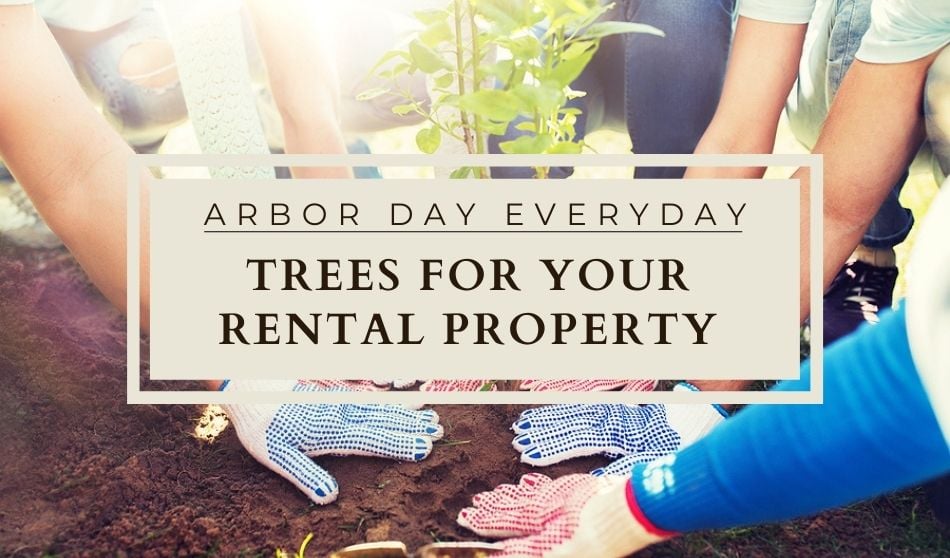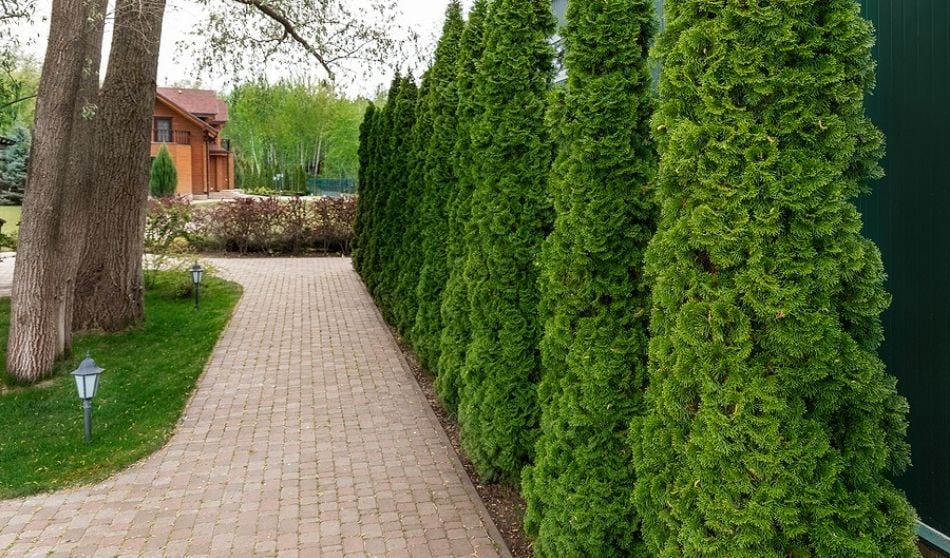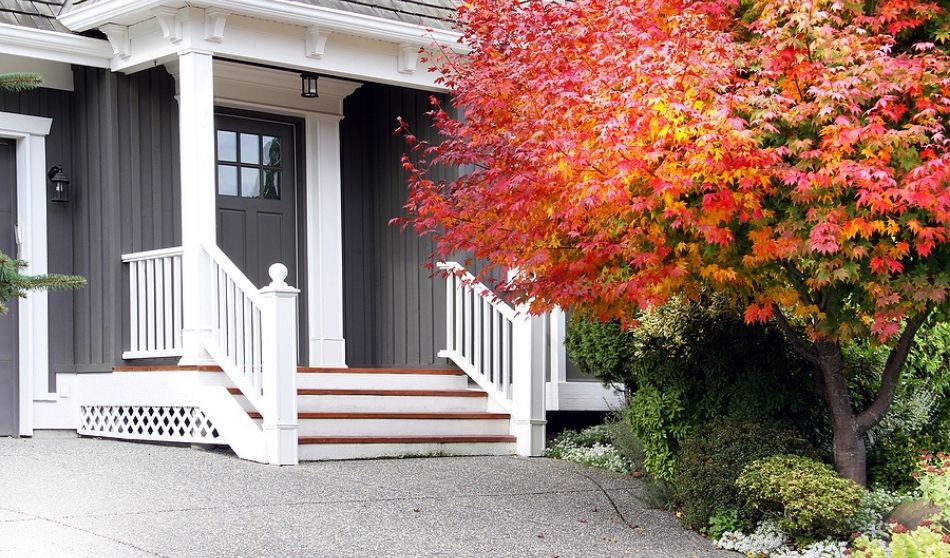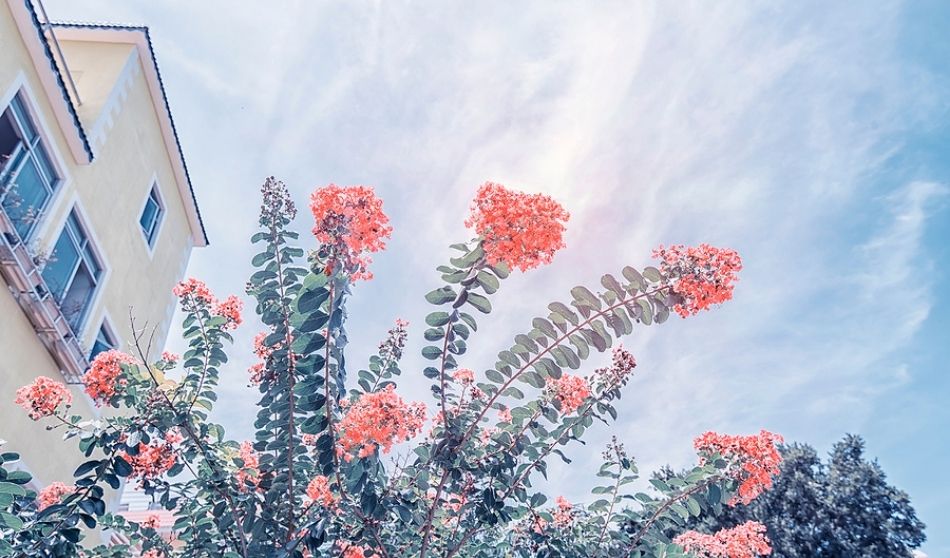
National Arbor Day is here this week, which gives us the perfect opportunity to talk about trees for your rental property. From curb appeal to privacy, trees elevate a commercial property and add a touch of home to a residential rental.
Although we may not consider it often in our general day-to-day, trees play an important role in our lives and as a landlord or property manager it’s important to pay attention to these wonderful resources by way of making decisions about which to plant and how to tend to the ones already established.
The Benefit of Trees for Rentals
Before we talk about types of trees for your rental property and care and maintenance concerns, let’s shine a light on some of the benefits of having trees around your rentals.
“Trees play a critical role in creating healthier, safer, and more connected communities. They clean our air, filter our water, and even slow storm surge and flooding in our cities. Trees also provide shade and cool our cities by up to 10 degrees, which can help prevent heat-related deaths in urban areas”. The Arbor Day Foundation
The Arbor Day Foundation offers these positive reasons to plant more trees and many of them directly impact a rental property:
- Trees help clean our air.
- Trees contribute to our health.
- Trees provide us with oxygen.
- Trees help clean our drinking water.
- Trees provide much-needed cooling.
- Trees help reduce the effects of climate change.
- Trees help us save energy.
- Trees benefit wildlife.
- Trees help reduce crime.
- Trees are a good investment of public dollars.
- Trees increase our property values.
Learn more about the research and statistics about these benefits here: Arbor Day Foundation Tree Facts
What to Consider Before Planting a Tree
Choosing great trees for your rentals comes down to five considerations: property type, location, purpose, size, and maintenance.
Property type
Each property type (commercial, residential house, multi-unit property, rural, etc) has different landscaping needs, so consider your property type carefully.
Location
Not only will you need to choose trees that work best in your area for your soil type and climate but also consider the optimal placement of those trees will be on the property itself. Growing trees could impact overhead power lines, roots could cause issues with plumbing, sewer or septic, or even push through concrete.
Purpose
Decide if you need the trees for your rentals to be more decorative or are you looking to provide your renters more privacy and shade.
Anne Balogh, a contributing writer for GardenDesigns.com says this when contemplating an evergreen, “consider the density of the foliage, especially if you plan to use evergreen trees to create a windbreak or privacy screen. Conifers tend to be better-suited for these applications because of their tiered branches and feathery needles.”
Size
The size of the trees at maturity, including growth rate, width, and density should be on your radar. Some municipalities have tree and hedge height limits you’ll want to research. Secondly, the size of a tree is a factor in the care and maintenance.
Maintenance
Easy spring cleanup, fall leaves, pruning, and critter and bug control are important considerations when choosing the right trees for your properties. You’ll also want to consider long-term concerns such as property damage in the case of inclement weather and slipping hazards from accumulated wet leaves.
In a dry climate or a drought area?
Learn more tips for Low-Maintenance Landscaping for Rental Properties
What Types of Trees are Great for Rental Properties?
From deciduous to evergreen, there is a never ending varieties of trees available to choose from for your rental property needs.
Deciduous
This category of tree loses all its foliage every year, which is something to consider when it comes to maintenance. Leaves drop and pile up meaning either having a landscaping company come out for a routine tidy or requiring renters to keep it maintained. But just because it comes with a little more cleanup, don’t count them out in your search for the perfect tree for your rental. They provide a lot of shade in the summer and look lovely for most spring and fall seasons.
Evergreen
Unlike deciduous trees, as the category suggests, evergreen trees provide year long color. Evergreens are a great choice when thinking about adding some trees around the property to provide privacy.
Tip: Did you know you can grow trees in pots? Small trees in pots might be just the right solution if you are concerned about tree roots. It also provides an uplifted elegance to your landscaping.

What Trees are Best for Privacy and Security?
For residential properties, privacy and security are important features for your renters. Fast growing and easy care and maintenance trees are great choices.
Goodhousekeeping offers these 10 best trees for year-round privacy in your backyard:
- Leyland Cypress
- Italian Cypress
- Flowering Dogwood
- Thuja Green Giant
- Weeping Willow
- Emerald Green Arborvitae
- Cherry Blossom
- Nellie Stevens Holly (technically a shrub)
- Thundercloud Plum
- Yew (another tall shrub)
And many of these that made this backyard list can work well in the front and side yards as well.
Tip: Looking to add a pop of color to improve curb appeal for your commercial or residential rental property? Consider a Myrtle or Maple! Be sure to research the variety that best suits your climate zone.
Other wonderful choices would be Redbud trees, Beech, Poplar, Purple leaf plum, and in the right climates a Desert Palm might be just the right addition to your landscaping.
Any day can be Arbor Day when another tree is planted on a rental property – No matter what trees you decide to plant, if cared for properly they can increase your property value, attract renters, provide shade, and help the environment, neighborhood, and community.







